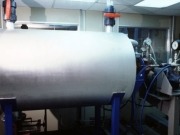
The Anaerobic Digestion and Biogas Association (ADBA) has reacted to the government’s Renewables Roadmap saying that although in general the document is supportive of renewable energy the anaerobic digestion (AD) sector is hardly mentioned. ADBA has responded by publishing its own ‘Roadmap for anaerobic digestion’ identifying the main obstacles to development of AD and how these can be overcome.
There are currently 92 AD plants in the UK compared to 69 in late 2011 and an independent report by the think-tank CentreForum, published in July, revealed that AD generates four times more energy than solar PV. The sector also has a capacity for growth of 800 percent by 2020, if the right level of support is received by the sector.
“DECC’s updated roadmap details some good progress on renewable energy, reflected in steady growth in AD in 2012, and lays out some helpful actions for the sector as a whole” said Charlotte Morton, ADBA Chief Executive. “However, delivering the coalition’s commitment to a huge increase in energy from waste though anaerobic digestion requires a much more focussed effort – and the government’s roadmap doesn’t even have a specific section on AD, or mention the potential for biomethane as a transport fuel.”
ADBA are keen to point out that as well as supplying a constantly generated form of renewable energy, AD could also benefit the UK by providing sustainable waste treatment, supporting climate-focused farming practices and improving air quality.
“DECC’s roadmap alone will not bring the coordination across government needed to realise these benefits” Morton added. “Waste policy needs to maximise the organic material available for AD, bioenergy policy needs to support good practice and compare technologies by common criteria, and biomethane in transport needs a more attractive framework of support.”
ADBA hope to work with the government during the course of the year to implement the strategy set out in the association’s own Roadmap alongside the provisions set out in the DECC document such as the publication of voluntary guidance on growing crops for AD.
Further information:

